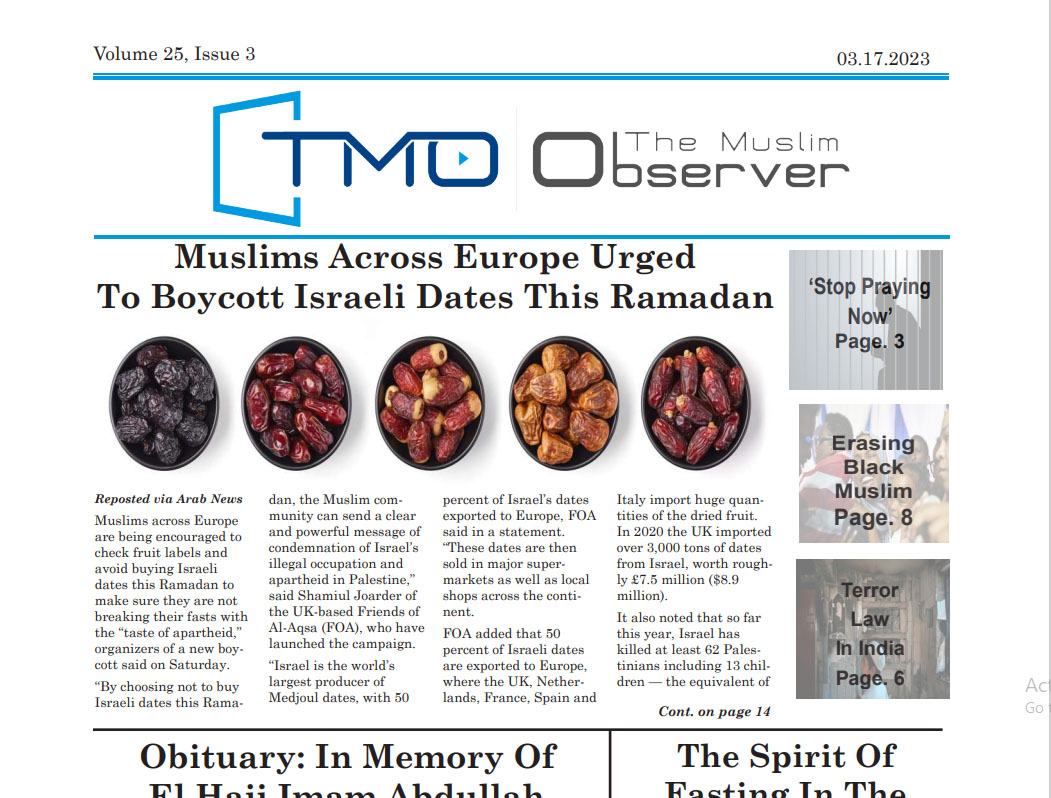Scientist contributes to Nobel prize winning research
By Carissa D. Lamkahouan
TMO Contributing Writer
Prominent Muslims in medicine is no new story. For ages, Islamic physicians have acted as revolutionaries, breaking ground on new scientific discoveries and furthering the pursuit of medicinal and scientific knowledge. In fact, it was Islamic doctors who laid the foundation for many modern-day practices such as separating the sick from the well in hospital settings, the development of pharmacies and the use of alcohol as an antiseptic. Their discoveries and innovations led to radical changes in the practice of medicine and surgery, even leading medieval Christian priests, and their often ineffective treatments, away from seeing patients and back to shepherding their flocks.
Physician Mohammed Aziz has honorably continued that tradition. Hailing from Bangladesh, Aziz led a difficult, seven-year clinical trial which led to the mass production and distribution of ivermectin, an anti-parasitic drug used to treat onchocerciasis, also known as river blindness. This condition is caused when people are bitten by blackflies, which originate in rivers. Once these parasites invade humans’ bodies, they produce larvae that then moves through tissue, resulting in severe bouts of itching, rashes and lesions on the eyes. Untreated, those afflicted with the disease risk the full or partial loss of their eyesight. Rural Africans living near rivers are particularly susceptible.
Aziz’s trials were held following Tokyo scientist Satoshi Omura’s discoveries in the 1970s of a bacteria found in soil that was revealed to kill parasites. Omura passed his findings onto William Campbell, an employee of Merck & Co., one of the world’s foremost pharmaceutical companies. From there, ivermectin was born.
The drug’s discovery had far-reaching and wonderful implications for the medical community, effectively eradicating river blindness in areas it is prevalent. Its success has been so great, in fact, that its development has been hailed as one tropical medicine’s biggest breakthroughs in a quarter of a century.
Furthermore, in 1987 Merck partnered with the World Health Organization to distribute the drug for free to any country which asked for it. As a result, more than one billion people have received treatment for river blindness.
This move was unprecedented in the medical community and just this month Omura and Campbell were awarded the Nobel Prize in medicine for their work to make this drug a reality. However, Aziz’s contributions were not mentioned by the Nobel committee. To rectify that omission, let’s recognize the work of this outstanding physician as he furthers the centuries-old tradition of trailblazing Muslim doctors and their many outstanding medical and scientific discoveries.
17-41















2015
1,037 views
views
0
comments